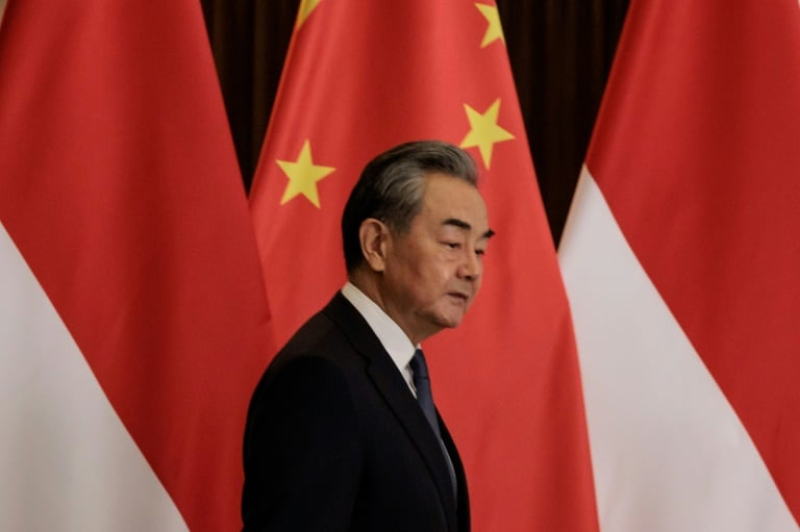- Yunus Urges Voters to Shape a ‘New Bangladesh’ |
- Bangladesh Polls: Campaign Ends as Voters Weigh Pledges |
- Bangladesh Heads to First Gen Z-Driven Competitive Poll |
- EC Lifts Mobile Phone Ban, Bars Photos Inside Booths |
- Youth participation vital to BD’s democratic future: C’wealth Group |
China's Wang meets Jokowi, Indonesian president

China's top diplomat met Indonesian President Joko Widodo and his successor Prabowo Subianto on Thursday as Beijing seeks to boost its regional influence.
The meetings come after Prabowo visited Beijing this month where Chinese President Xi Jinping praised relations with Jakarta, laying out a vision for regional peace as tensions rise between Beijing and other Southeast Asian neighbours -- including the Philippines over the disputed South China Sea.
Indonesian defence minister Prabowo stormed to a first-round majority victory in Indonesia's presidential election in February. He has voiced support for developing closer ties with Beijing, reports BSS.
Wang also met Indonesian foreign minister Retno Marsudi earlier on Thursday before visiting Widodo, more popularly known as Jokowi, at the presidential palace and then Prabowo at the defence ministry.
Retno said Jokowi and Wang expressed their desire for regional peace and stability, and repeated calls for a de-escalation and ceasefire in Gaza between Israel and Hamas.
"Mr. President emphasised no one would like to see any escalation," she told reporters after the meeting.
"China's and Indonesia's position are the same on this issue and Mr. President also conveyed his belief that China would also use its influence to prevent escalation."
Beijing's top diplomat will then chair a session of the China-Indonesia High-level Dialogue Cooperation Mechanism on Friday before travelling to Cambodia and Papua New Guinea.
China is one of the biggest sources of foreign direct investment in Indonesia and has poured billions of dollars into projects in the archipelago nation.
Indonesia's foreign policy is typically neutral and Jakarta walks a delicate diplomatic tightrope in its relations between Beijing and Washington, who are chafing over trade, Ukraine, the Middle East, Taiwan and the South China Sea.
Chinese companies have ploughed money into the extraction of Indonesian natural resources in recent years, particularly the nickel sector where Beijing's spending has stoked unrest over pay and working conditions.
Jakarta inaugurated Southeast Asia's first high-speed rail line last year, also a multibillion-dollar project backed by Beijing.

